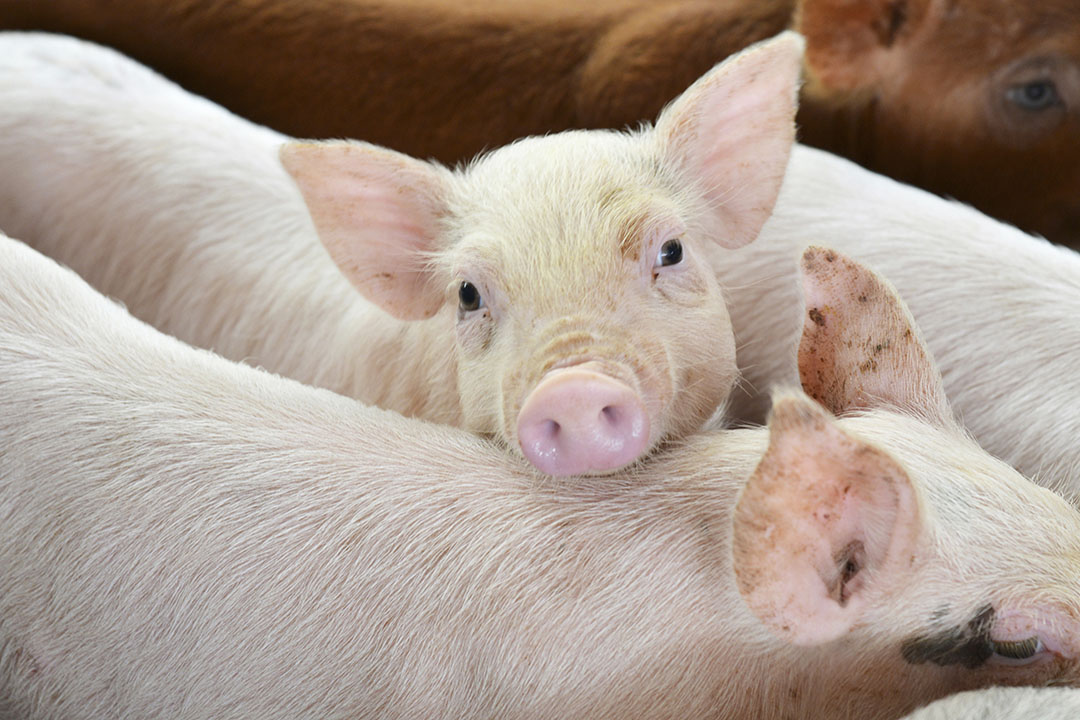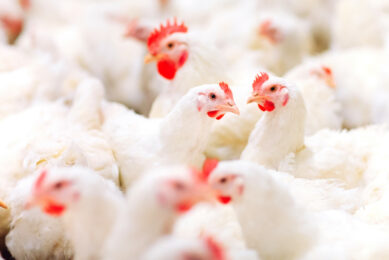Probiotics – the way forward

The application of Bacillus-based probiotics in swine feed can support a reduction in the use of antimicrobials by promoting the robustness of piglets at weaning and their vitality for the rest of their production cycle.
The Danish swine industry has shown that it is possible to reduce the use of antimicrobials (Figure 1). The distribution of the Danish consumption of antimicrobials over age classes or categories of pigs show that the majority is used in sows, piglets and weaners, and there is no reason to believe that this distribution should look different in other countries.
Figure 1 – Total antimicrobial use in Danish pig production.
There is no simple solution in reducing the use of antimicrobials without effecting negatively the health and performance of the animals and recommendations point to many focus areas, such as actions to prevent diarrhoea in weaners and finishers and diagnostics and management of antibiotic treatments. Many management steps can be taken to prevent diarrhoea in weaners and finishers, including adequate cleaning of facilities, securing both a high quality feed and water supply and a comfortable thermal environment. In terms of diagnostics, care and attention should be given to a correct administration and dosing of antibiotics. Of course, there are many other focus areas that could be considered, but here the focus will be on the role of feed additives and, in particular, the role of probiotics in the reduction of antimicrobial use in pigs.

Positive mode of action
A probiotic is a live microbial feed supplement which beneficially affects the host animal by improving its intestinal microbial balance and, when administered in adequate amounts, confers a health benefit on the host. It has been documented that when a Bacillus-based probiotic is supplied to the sow via feed, the microbiota in the sow is modulated so that the content of enteric pathogens – like Clostridium perfringens – is reduced whilst the number of beneficial microbes like lactic acid bacteria is enhanced. Consequently, the sucking piglets find themselves in a less challenging micro-environment in the farrowing pen. This has a positive impact on their health through a promotion effect of their gut microbiota. It can be shown that supplementation of a Bacillus-based probiotic, to sow feed can reduce the pre-weaning mortality of sucking piglets (Table 1). Utilisation of creep feed before weaning can lead to adverse health effects. This can be related to feed ingredient quality and/or early feeding with plant fibres and proteins.
Piglets may have difficulties digesting such plant materials as the enzymes in the pancreatic juice are directed towards degradation of milk dry matter. Utilising Bacillus-based probiotics can be an effective tool to secure optimal degradation of protein and fibres from plants. This is possible as this type of probiotic excretes digestive enzymes as part of their life cycle helping the pig to digest the feed. The improved digestion of the feed together with the effect on pathogens will support normal faecal consistency as well as improved growth (Table 2). Application of probiotics to creep feed reduced the antibiotic treatments by 52% in this study.
After weaning, a lack of feed intake can decrease the speed by which digesta pass though the intestines. This often results in an overgrowth of pathogens in the small intestine causing adverse effects on intestinal integrity and histology which can lead to diarrhoea and depressed performance. Again, proper probiotic supplementation can counteract this primarily through colonisation resistance and support of the digestion of the feed. Therefore, the overall productivity of piglets can be enhanced by Bacillus-based probiotics.
The results presented in Table 3 are from a 42 days weaner study starting from weaning (day 28). The study demonstrated that supplementation of a Bacillus-based probiotic reduced the number of piglets removed during the study by 47% and lead to a significant improvement in piglet performance.
Figure 2 – Effect of a probiotic* on grower-finisher mortality in a commercial 5500 pen space continuous production unit.

Advantages for grower-finishers
Feed additives, such as probiotics, are not often used in diets for grower-finishers. However, the advantages of probiotics applied to grower-finishers are two-fold. These pigs are still exposed to enteric pathogens and this can have a dramatic negative impact on intestinal integrity and functionality. This adverse situation can be prevented or reduced in severity by probiotics that produce metabolites with antimicrobial properties. Furthermore, even though the gut microbiota is fully developed in these pigs, its composition can still be beneficially modulated so that feed utilisation and growth are improved.
A probiotic application on a commercial 5500 pen space grower-finisher facility with continuous production over a period of seven months showed an average reduction in number of removals of 42% when compared to a preceding period of seven months (Figure 2).
Author: Jens Noesgaard Jørgensen, Senior Product Manager – Swine, Animal Health, Chr. Hansen, Denmark







